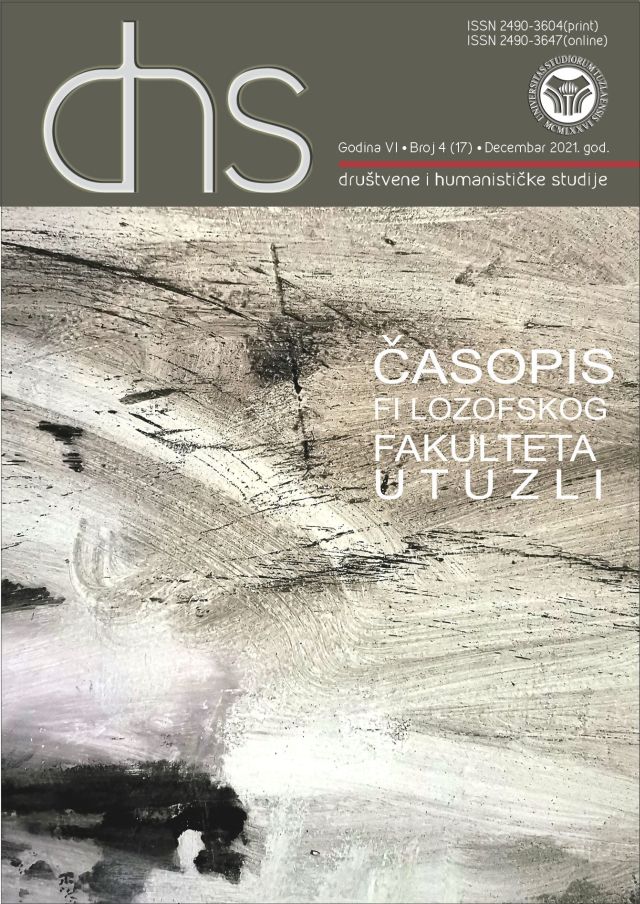Prisutnost FOMO-a kod studenata Filozofskog fakulteta u Tuzli - (bez)opasni fenomen?
FOMO Presence among Students of Faculty of Humanities and Social Sciences in Tuzla – (Non)Dangerous Phenomenon?
Author(s): Šejn HusejnefendićSubject(s): Social Sciences, Education, Psychology, Communication studies, Sociology, ICT Information and Communications Technologies
Published by: Filozofski fakultet Univerziteta u Tuzli
Keywords: FOMO; nomophobia; students; social networks; Facebook; Instagram;
Summary/Abstract: The present paper discusses the phenomenon of excessive use of smartphones focusing on social networks – primarily Facebook and Instagram. Subjects in focus were students of the Faculty of Philosophy of the University of Tuzla from all study fields, undergraduates and postgraduates. Paper is theoretically focused on the phenomenon, recognized by recent academic literature, as FOMO or "fear of missing out)" and also partially investigates nomophobia ("NO MObilePHonePhoBIA) as a new subtype of "addiction" (whether it is an addiction or not, the academic community is still divided). It also includes a theoretical introduction and description of FOMO syndrome and nomophobia in developed democracies with available statistics and data on recent research that focuses – mainly – on young people (not older than 35 years). Based on the available research, FOMO was defined and also indicators that can be interpreted or related to nomophobia. A considerable number of indicators were found which confirm the possible wide existence of FOMO and nomophobia among students of the Faculty of Philosophy, University of Tuzla. The empirical part consists of a theoretical analysis of the phenomenon in modern democratic societies (with a focus on the younger population) and a comparison with the data obtained from an online survey in which 110 students participated. Quantitative indicators point to a justified assumption of the existence of FOMO phenomena and nomophobia among students of the Faculty of Philosophy, University of Tuzla. 25% of them feel a sudden need to check their smartphones if they haven’t done so in the last hour; 21% say that it never happens to them that they don’t check social networks for more than an hour. 46% of students would not be able to abstain from social media and a similar percentage said they have problems related to sleep. A significant number of respondents admit that they spend too much time on social media, but, as they subjectively assess, they do not feel that it’s a "digital addiction" but a habit.
Journal: DHS-Društvene i humanističke studije: časopis Filozofskog fakulteta u Tuzli
- Issue Year: XVII/2021
- Issue No: 17
- Page Range: 441-458
- Page Count: 18
- Language: Bosnian

